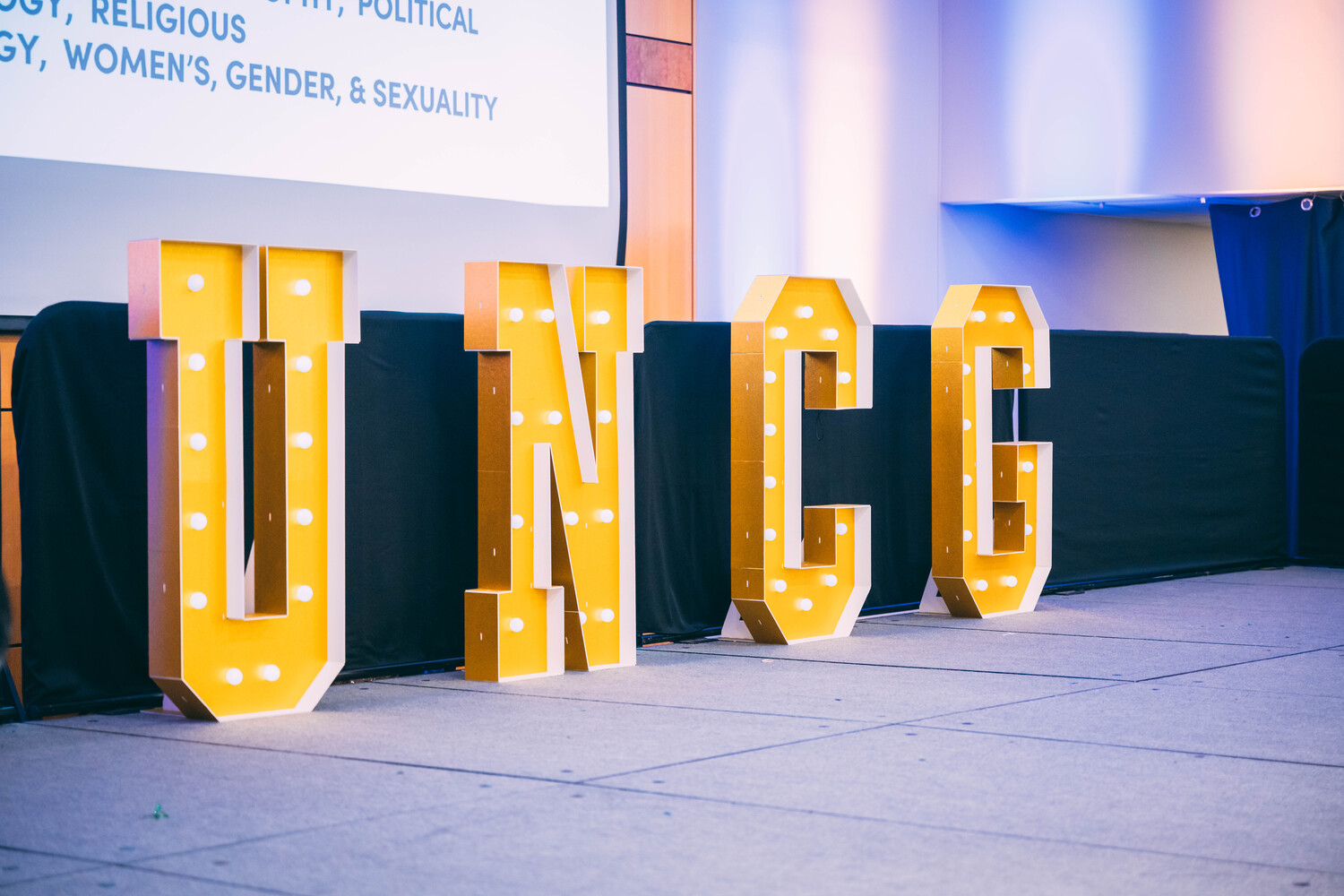History of the WGSS Program
Program History
The Women’s, Gender and Sexuality Studies Program at the University of North Carolina at Greensboro is one of the oldest across the country.
Since 1972, the Women’s, Gender and Sexuality Studies faculty has been dedicated to continuing UNCG’s historical concern with the lives of women and with the roles they play in society.
With UNCG’s history as a school for the higher education of North Carolina women, its community support from alumna of the Woman’s College, its racially and culturally diverse student body, and its energetic faculty, the university offers an ideal environment for Women’s, Gender and Sexuality Studies.
Since 1972, the Women’s, Gender and Sexuality Studies faculty has been dedicated to continuing UNCG’s historical concern with the lives of women and with the roles they play in society. The Women’s, Gender and Sexuality Studies Program now offers an undergraduate major and minor, a graduate certificate, and an MA degree. The program encompasses more than 30 courses with a part-time director, an associate professor, an assistant professor, 35 cross-appointed faculty, and over 75 faculty affiliates from 17 departments. Faculty members affiliated with the program are housed in departments and professional schools throughout the university, making Women’s, Gender and Sexuality Studies the most well-established interdisciplinary program in the university.
UNCG began its institutional life as a college for women in 1891–the first state sponsored school for the higher education of women in North Carolina. It became coeducational in 1963 when laws were amended to authorize admission of both men and women at all levels of instruction on all North Carolina State University campuses. Renamed the University of North Carolina at Greensboro, the campus became a doctoral degree granting institution and today has more than 18,600 students and 2,500 faculty and staff. UNCG is the largest state university in the Piedmont Triad and has an annual economic impact of more than $1 billion. The campus has grown to include 24 residence halls and 30 academic buildings on 210 acres.
Interested in supporting the future of The Women’s, Gender,
and Sexuality Studies Program at UNC Greensboro? Donate Online today!
Why we need your help
We are especially motivated to strengthen the WGSS program now in light of increases in misogynistic, racist, homophobic, transphobic, xenophobic, and Islamophobic rhetoric and policy that have emerged within state and national politics over the last few years. Examples include HB2, assaults on reproductive rights and women’s healthcare, the erosion of voting rights and increased efforts to prevent people from exercising the franchise, the growing prominence of various kinds of hate crimes, the threat of registries for Muslims, and the public normalization of sexual assault.
This is a time when intersectional feminist analysis and organizing is more vital than ever. The WGSS Program is teaching our students how to understand and grapple with these contemporary realities while seeking to imagine and work toward possibilities for justice – as messy and complex as that process is. We provide necessary tools for understanding the relations among forms of oppression and for seeking to combat them.
We have been doing this work for almost half a century, and your help will enable us to continue and extend our efforts in these difficult times.

What your contribution will support
- Increased teaching by cross-appointed faculty
- New course creation
- Research and travel grants for students and faculty
- Assistantship funding to increase our MA program’s competitiveness
- Events for prospective and current WGSS students and faculty
Real-World Impact
“I plan to be a labor organizer when I graduate from UNCG. WGS was my first real introduction into critical analyses of oppression and liberation…WGS helped me to understand the most complex intricacies of the world around us, all through the scope of wanting to change it.”
-Dhruv Pathak, double major in WGS and History
“WGS has been instrumental in my personal, professional, and academic development. It has given me deep analytical skills, access to an array of disciplines, and it has empowered me not to simply welcome diversity, but to work intentionally towards understanding people who are different from me. WGS has completely changed the way I look at the world, for the better.”
-Taylor Chapman, graduated with a B.A. in WGS and English